
Cybersecurity professionals are the digital guardians of the cyberspace. They work in every cybersecurity field to protect all systems, data and computers from malicious attacks. Their guardian roles include everything from participating in making cybersecurity regulations to building impenetrable security networks to protect data. These numerous roles give us various cybersecurity professions, such as CISSPs and CEHs.
This article clearly outlines how to become a cybersecurity expert. We explore the skills, requirements and job opportunities available for you in the field.
What is a Cybersecurity Expert?
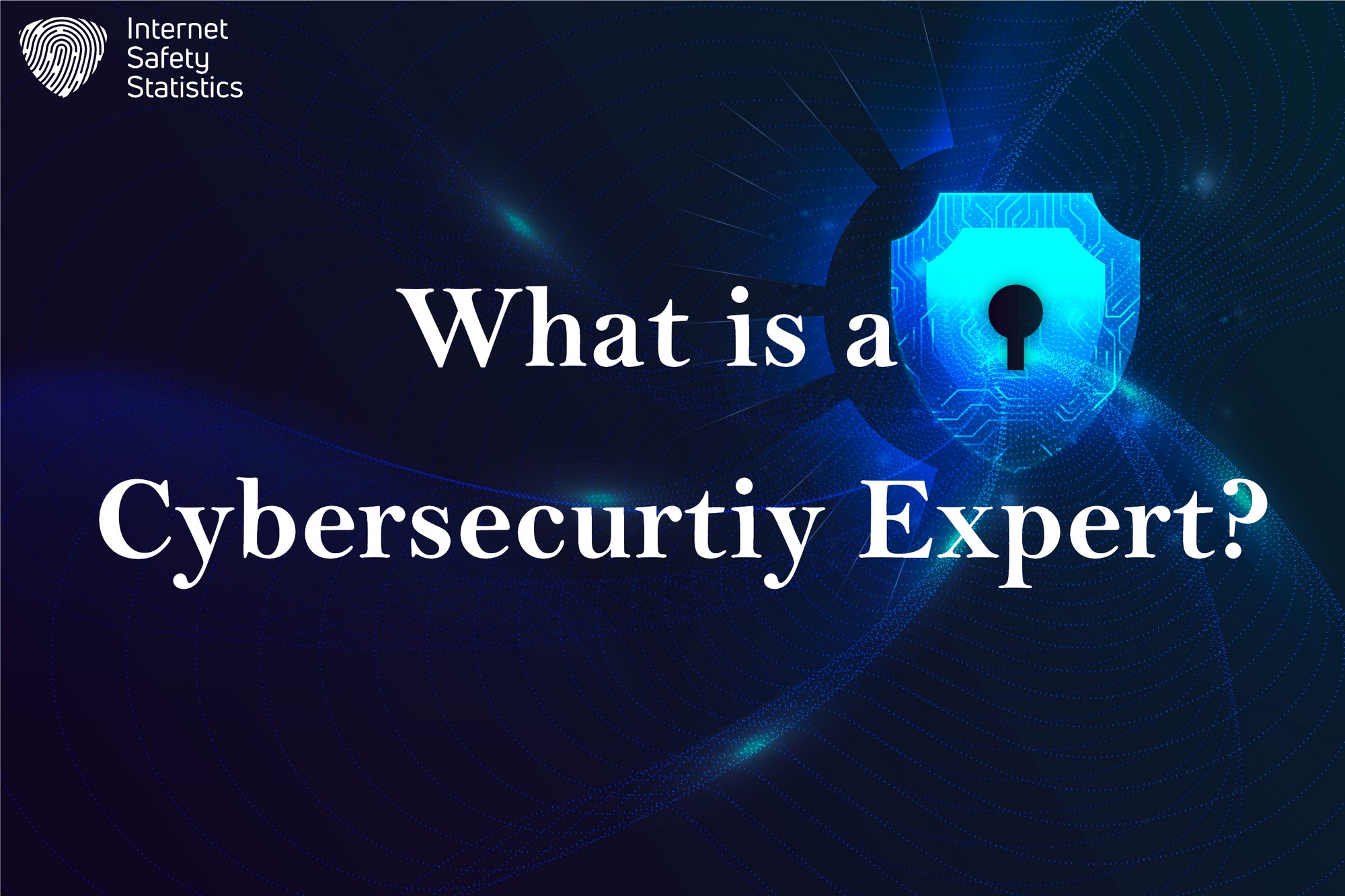
A cybersecurity expert is someone who has the knowledge and skill set to detect, respond to and prevent cyberattacks. Their work isn’t limited to businesses, but they work for governments or other organisations to keep their systems secure. A cybersecurity expert works on identifying possible system vulnerabilities before cyber attackers strike their systems.
A cybersecurity expert works proactively by conducting vigilant scans for suspicious activity. If they encounter such activity, they immediately employ countermeasures to ensure the safety of their networks and prevent further damage. In their work, cybersecurity experts protect all tasks involving sensitive information, such as sending, receiving, logging in, or sharing. A cybersecurity expert helps protect data at rest and during transit.
What Does a Cybersecurity Expert Do?
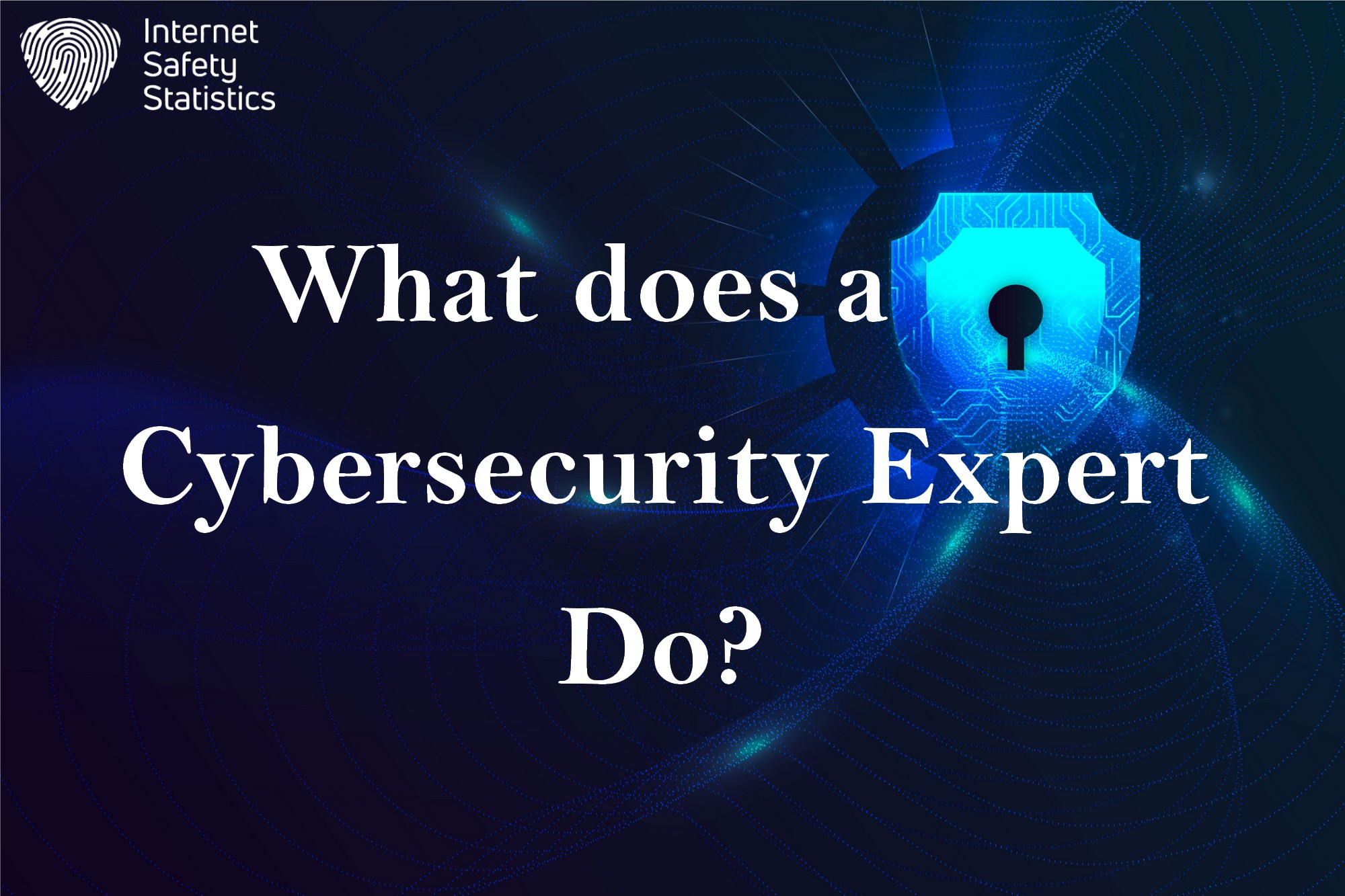
A cybersecurity expert’s job includes more than keeping a watchful eye on cybersecurity systems. They must adopt a proactive approach to cybersecurity, continuously looking for possible vulnerabilities and suggesting and enforcing possible protective measures. They are responsible for implementing the organisation’s cybersecurity action plan if it is under attack and propose possible modifications to its cybersecurity measures to stay updated with the latest cybersecurity threats.
Identifying and Assessing Risks
A cybersecurity expert’s main job requirement is identifying and assessing cybersecurity risks. A cybersecurity expert must be able to pinpoint possible system and network vulnerabilities and understand what methods cyber attackers might use to infiltrate the organisation. There are several steps they must take to achieve and serve their organisation’s cybersecurity goals properly. These three steps are:
Understanding the Organisation
Properly serving the organisation’s cybersecurity goals entails mapping its IT infrastructure, including all hardware, software, networks and devices. The following step is to identify all valuable data assets and their sensitivity levels to determine the proper protection measures to adopt. Then, a cybersecurity expert must analyse how users access and interact with the organisation’s and outside systems to determine the level of protection measures needed.
Threat Landscape Analysis
After a cybersecurity expert has completed an initial and comprehensive analysis of the organisation, they must stay informed about current cyber threats and attacker tactics relevant to the organisation’s industry and size. This comprehensive understanding allows them to properly assess the possible impact of different types of attacks, such as phishing, malware or ransomware, on the organisation.
Vulnerability Assessment
The final risk identification and assessment step is identifying the organisation’s cybersecurity vulnerabilities. A cybersecurity expert can test security systems and applications for possible exploitable weaknesses by cyber attackers. They must also continuously evaluate existing security controls for effectiveness, identify potential security gaps, and prioritise risks based on severity and exploitability.
Implementing Security Controls
Cybersecurity experts have numerous tools to employ and techniques to implement to ensure the safety of the organisation’s cybersecurity realm and mitigate the effects of any cybersecurity attack. We can conclude these tools in the following categories.
Layered Defense Approach
Generally, it’s best if cybersecurity experts adopt a layered defence approach. This approach effectively keeps cyber attackers at bay and gives cybersecurity experts enough time to detect and respond to the attack. The defence layers include different IT levels such as network, endpoint, application and data layers. The tools a cybersecurity expert can use to secure these layers include deploying firewalls, intrusion detection and prevention systems, antivirus and antimalware agents and data encryption tools.
Access Control
A vital cybersecurity step is enforcing a least privilege policy. This policy limits who has access to information, where users only have access to the data and resources they need for their job. Implementing strong authentication and authorisation mechanisms also ensures the protection of the identity and information of the users with access to information.
Configuration Management
A cybersecurity expert must ensure all systems and devices are properly configured with secure settings and up-to-date software patches. These two categories represent the most exploitable cybersecurity vulnerabilities cyber attackers use to access systems. Proper data backup ensures the organisation can return immediately after any breach or attack.
Incident Response Planning
A cybersecurity action plan is a joint responsibility of the cybersecurity experts and the organisation’s management. The expert must develop a clear and well-defined plan for responding to security incidents and include roles and responsibilities for all stakeholders. After the forging of such an action plan, the cybersecurity expert must adequately explain it to the employees and define their roles in protecting their organisation’s system.
Monitoring and Analysing Security Events
These experts need to be able to monitor systems for signs of an attack. They must continuously monitor system logs for suspicious activity, such as failed login attempts, unauthorised access attempts or unusual data transfers. A cybersecurity expert will utilise SIEM (Security Information and Event Management) tools to aggregate and analyse data from various security sources for centralised monitoring and threat detection.
Vulnerability scans are another method cybersecurity experts use to monitor and analyse security events. They regularly scan systems for vulnerabilities and prioritise remediation efforts based on critical vulnerabilities. These experts must stay updated on current threats and attack patterns to improve detection and response capabilities.
Responding to Security Incidents
If a cybersecurity attack occurs, cybersecurity experts need to be able to respond swiftly and effectively to contain the damage and prevent further attacks. They must follow the action plan steps to quickly isolate the affected systems and data to prevent further damage or compromise and deactivate compromised accounts or devices. As they work to contain the cybersecurity attack, cybersecurity experts determine the incident’s scope and impact, identify the root cause and gather evidence about the source of the attack or vulnerability.
After identifying the root cause, a cybersecurity expert eradicates malware or other malicious software from affected systems. Then, they work to restore affected systems and data to normal operation so the organisation can return to its daily tasks. The final step is to document the incident, notify relevant stakeholders and communicate lessons learned with other employees to prevent future occurrences.
Educating and Training Users
The cybersecurity landscape constantly changes, so cybersecurity experts must stay updated on the newest threats and trends. When cybersecurity experts learn new protection measures, they should transfer such knowledge to other employees. They can conduct regular training sessions on cyber threats, phishing scams, social engineering techniques and best practices for password hygiene and secure data handling.
Another possible educative method is conducting simulated phishing attacks or cyber incidents to test user awareness and the effectiveness of security controls. A cybersecurity expert will work on developing and disseminating clear security policies and procedures for all employees to follow as part of a cybersecurity action plan.
Different Types of Cybersecurity Experts
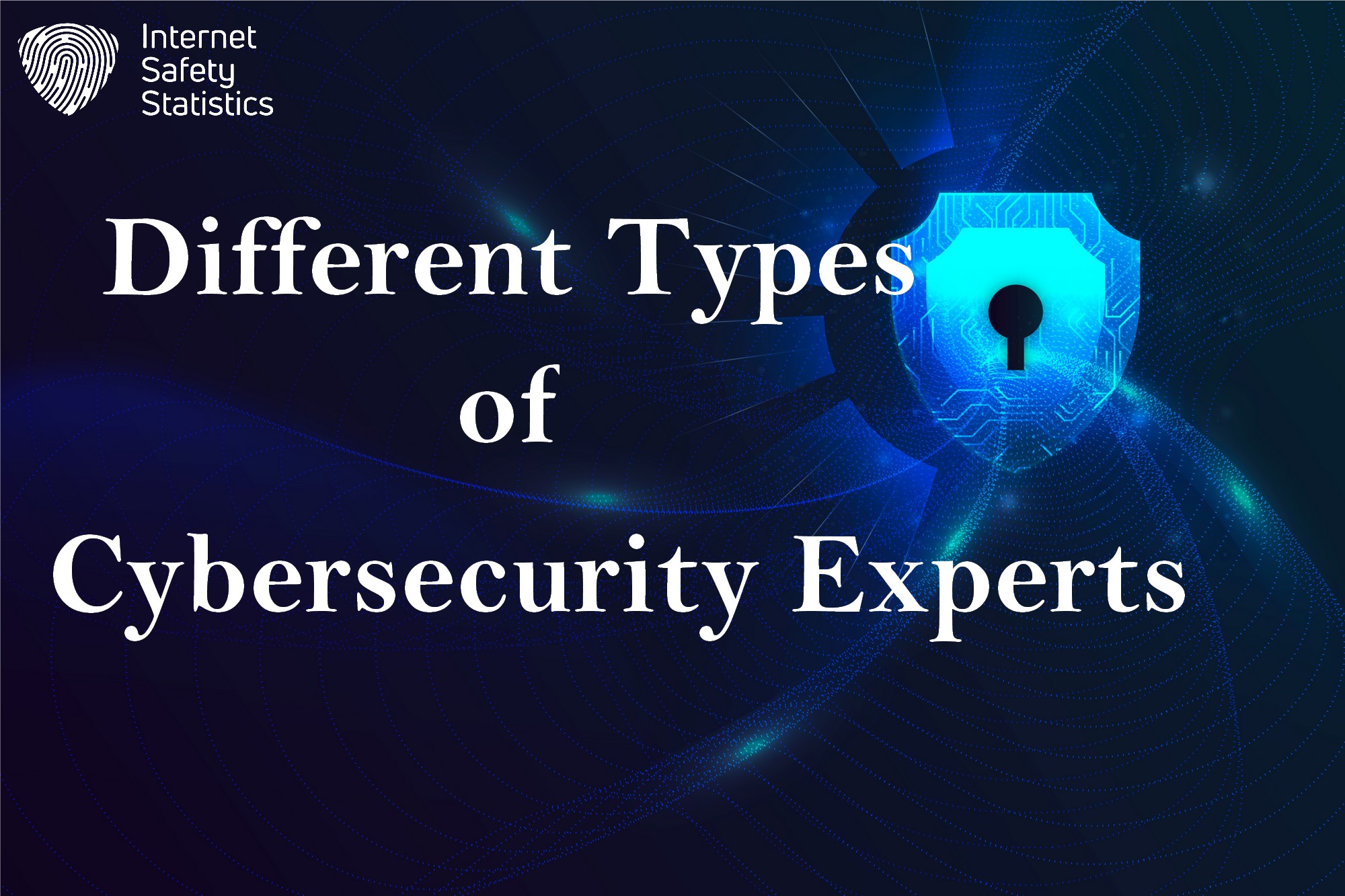
A cybersecurity expert is a vast term that includes various positions in the cybersecurity field. There are specialised experts such as CISSPs, CEHs and GSLCs. Each of these experts has specific roles, requirements and technical qualifications to hold positions in the cybersecurity field. We can list the following cybersecurity expert positions that you can also aspire to fill.
Security Analysts
Security analysts monitor and analyse security events and identify the possible vulnerabilities attackers use to access the system. They may also be involved in investigating security incidents and developing security policies.
Penetration Testers
Penetration testers are similar to CHEs or ethical hackers. They both attempt to break into the organisation’s computer systems to identify exploitable vulnerabilities. This information can then be used to improve the security of the systems.
Security Architects
Security architects design and implement security systems for organisations. They gather information regarding the organisation’s size, trade and cybersecurity goals to create the best cybersecurity plan for it. This role means security architects may take part in developing the organisation’s cybersecurity policies and procedures.
Incident Responders
They are responsible for responding to security incidents, whether they detect them or are informed of them. Their role involves containing the damage, identifying the attackers and the root base of the attacks and restoring cybersecurity systems to their normal operating, if possible.
How to Become a Cybersecurity Expert?
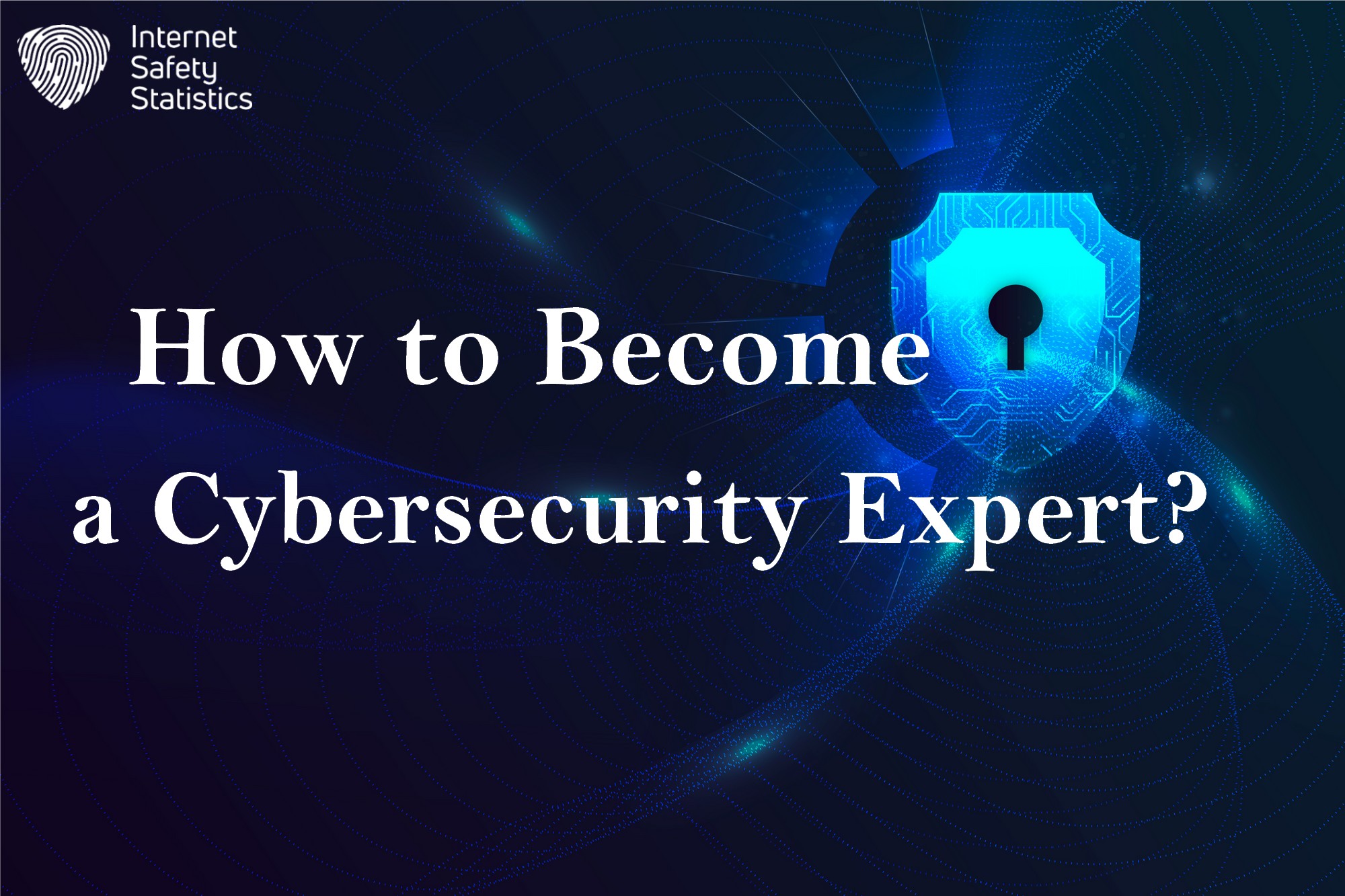
Cybersecurity is a rapidly evolving field with a high demand for qualified cybersecurity professionals. It’s not enough to obtain a degree in computer science; you must solidify your knowledge by obtaining specialist certifications and fieldwork. Here are the main steps you need to follow to become a cybersecurity expert.
- Obtain a Degree in Cybersecurity: There are various college degrees you can aim to obtain, such as a Bachelor’s degree in Computer Science, Systems Engineering, IT or any other relevant field.
- Master’s Degree: It’s best to continue learning in your cybersecurity field by applying for a Master’s Degree. This degree will give you more in-depth and specialised field studies.
- Training Courses: These courses will prepare you with hands-on experience in the work field. You will work through modules and simulations of cybersecurity attacks and problems where you must act quickly and vigilantly to eliminate threats. Training courses are excellent in preparing you for cybersecurity expert certification tests.
- Work Experience: Many advanced cybersecurity certifications, such as CISSP, require field experience for numerous years before application. This experience will deepen your knowledge and give you a broader perspective on the evolving cybersecurity scene.
- Training courses, field experience and extensive preparation will enable you to obtain your cybersecurity certification. Whichever certification you’re aiming for, you can prepare yourself enough by using both online and in-person classes and reviewing previous exam models.
- Use your time to educate yourself on cybersecurity trends and updates. Various worldwide certified institutions, such as ISAC and the Cyber Scheme, will allow you to connect with fellow cybersecurity professionals while providing you with field experience and helping you keep up-to-date with the latest cybersecurity trends.
What Qualifications Do You Need to Become a Cybersecurity Expert?
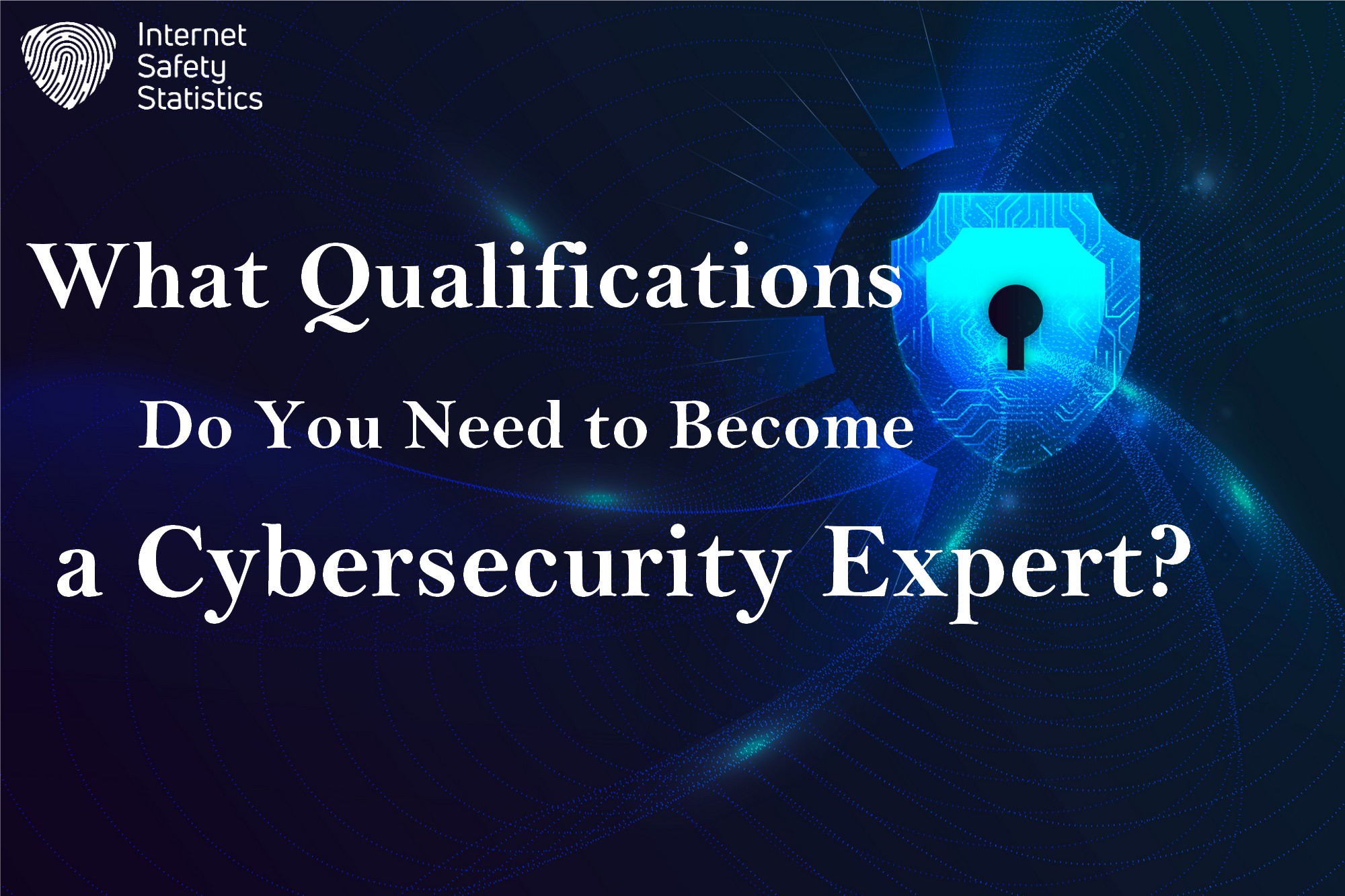
Becoming a cybersecurity expert requires several qualifications that mainly depend on the specific job you want. However, there are general requirements that employers look for when reviewing candidates’ applications. These requirements include:
- A Bachelor’s degree in Computer Science or a related field.
- Two or more years of field experience in a cybersecurity training program, such as cybersecurity forensics.
- Experience using programming languages such as Java and Python.
- Comprehensive knowledge of cybersecurity tools, such as antivirus, firewalls and endpoint security agents.
- Updated knowledge regarding the latest cybersecurity threats and trends.
What Are the Skills Cybersecurity Experts Need?
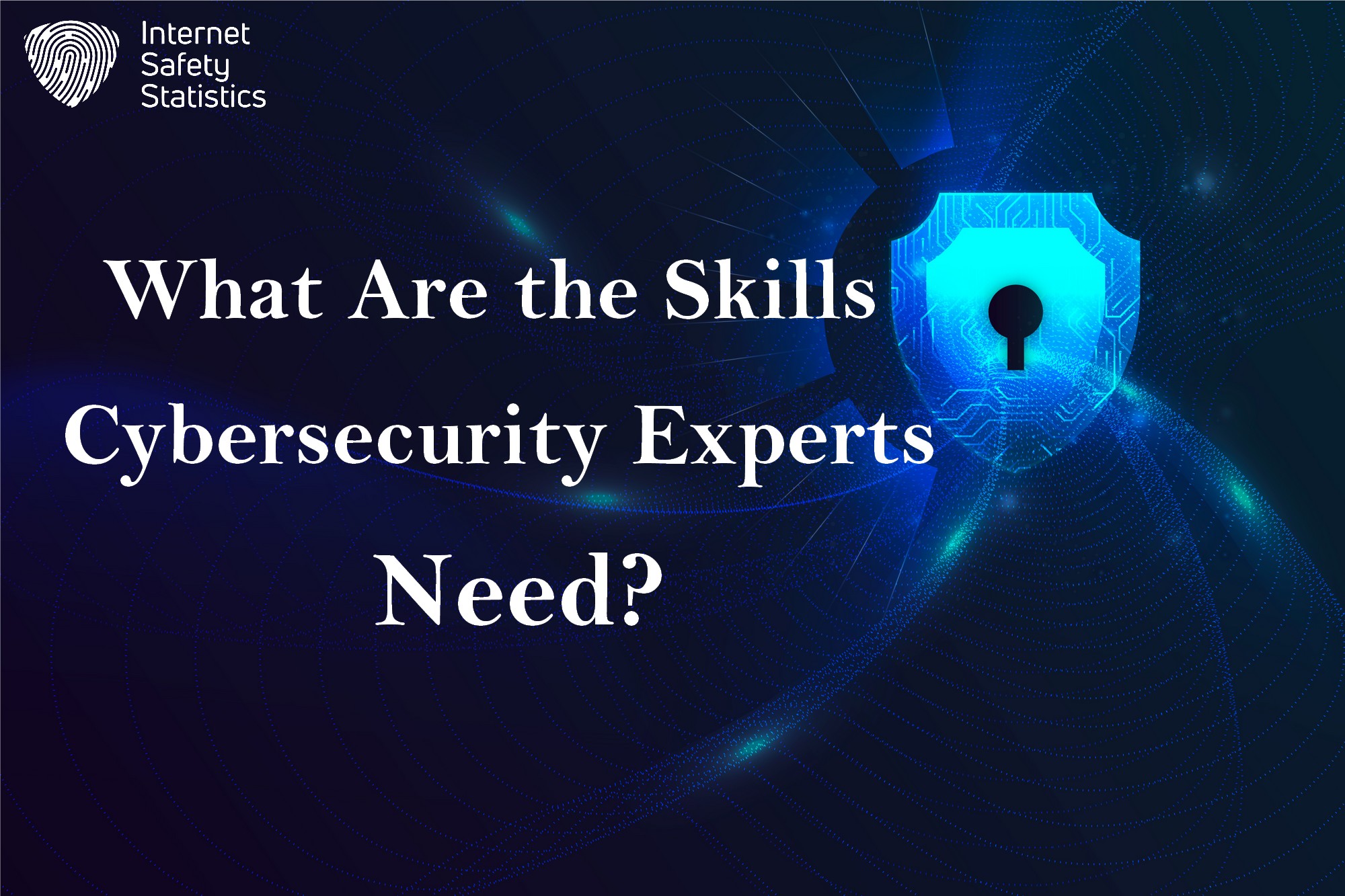
Cybersecurity is a dynamic field; professionals must be adaptable and committed to ongoing learning to stay ahead of emerging threats and technologies. Cybersecurity experts wear many hats, and the specific skills needed can vary depending on the subfield and job role. But some critical areas of expertise are generally valuable across the board:
Technical Skills
These skills include the skills cybersecurity experts need that pertain to the technical aspect of cybersecurity, such as a strong understanding of computers, networks and security technologies. They also must understand operating systems, programming languages, encryption and cryptography methods, network protocols and security tools. Moreover, they must understand how to automate tasks using scripting languages such as Python.
Analytical Skills
Analytical skills include analysing data and identifying patterns that could indicate a cybersecurity attack. A cybersecurity expert must be experienced in monitoring network activity for suspicious activity or behaviour and respond to incidents promptly. They must know risk assessment methodologies and can identify and prioritise security risks. This includes understanding business processes and aligning security measures with organisational goals.
Problem-Solving Skills
Cybersecurity experts need to be able to think critically, analyse complex situations, identify root causes and develop solutions under pressure. These skills allow cybersecurity experts to identify cybersecurity incidents and vulnerabilities and suggest proper solutions easily.
Adaptability and Continuous Learning
A cybersecurity expert must be able to adapt and learn new things to keep up with the changing cybersecurity landscape. This learning process includes correctly understanding security policies, procedures and compliance requirements relevant to the industry and region, including regulatory laws such as GDPR and HIPAA. Moreover, experts in the field should be able to educate and spread awareness among users about cybersecurity best practices, such as human error, a common factor in security breaches.
Communication and Collaboration
Cybersecurity is a team effort which calls for effective communication of complex technical concepts to non-technical stakeholders. Cybersecurity experts must often convey risks, recommendations and incident details to executives and team members. They also often need to collaborate with IT teams to implement security measures across the organisation.
Additional Skills
There are numerous additional skills that cybersecurity experts need in their work. These skills include expertise in handling security incidents according to established procedures and collecting and analysing digital evidence, which is vital for investigating cyberattacks. They must also clearly understand the security implications of cloud computing, securing IoT devices and implementing appropriate cybersecurity measures.
How Long Does It Take to Become a Cybersecurity Expert?
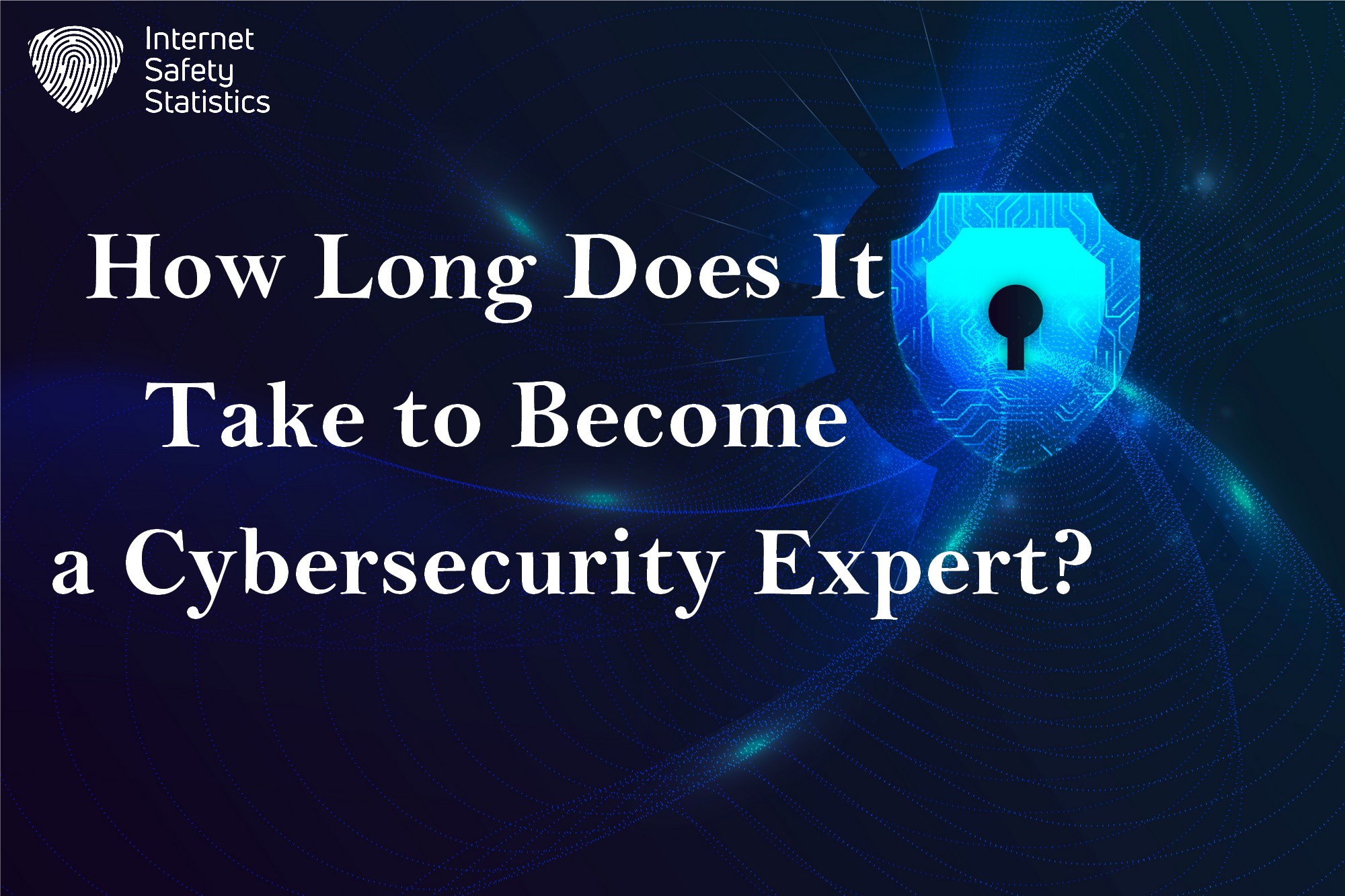
Depending on your background, aspirations and career path, becoming a cybersecurity expert can take several years. The field constantly changes, and there is always new information to learn. However, there are several things you can do to accelerate your career, such as getting a relevant degree, taking cybersecurity courses and gaining experience in entry-level cybersecurity roles.
Besides the following aspects, we must stress that staying updated with new threats, technologies, and best practices is essential throughout your career. Hands-on experience in real-world scenarios is invaluable for developing expertise and problem-solving skills. You must engage with other professionals, attend events and contribute to the community, accelerating your learning and career growth.
Your Educational Background
Your educational background includes studying cybersecurity-related fields such as computer science, which provides a strong foundation for your career to build on. Although it’s a requirement for some organisations to hire you, a degree in a cybersecurity-related field isn’t a must; many experts come from diverse backgrounds. College degrees can take four to six years, bootcamps can take months to a year, while self-learning takes persistence and probably longer.
Your Career Path
Different jobs have different requirements despite the general ones they all share. Entry-level positions may be attainable sooner, while specialised or leadership positions might take longer. It helps if you have experience in IT or related fields such as networking, systems administration and scripting; it makes the transition to cybersecurity faster. If you’re aiming for positions such as CISSP or CEH, you might need at least five years and two years of experience, respectively.
Industry Estimate
Generally, you can land an entry-level cybersecurity role within two to four with the right skills and experience. Becoming a recognised expert in the field requires extensive knowledge, continuous learning and potentially further certifications or higher degrees. This could take from five to ten years or even longer.
What is the Average Salary of a Cybersecurity Expert?
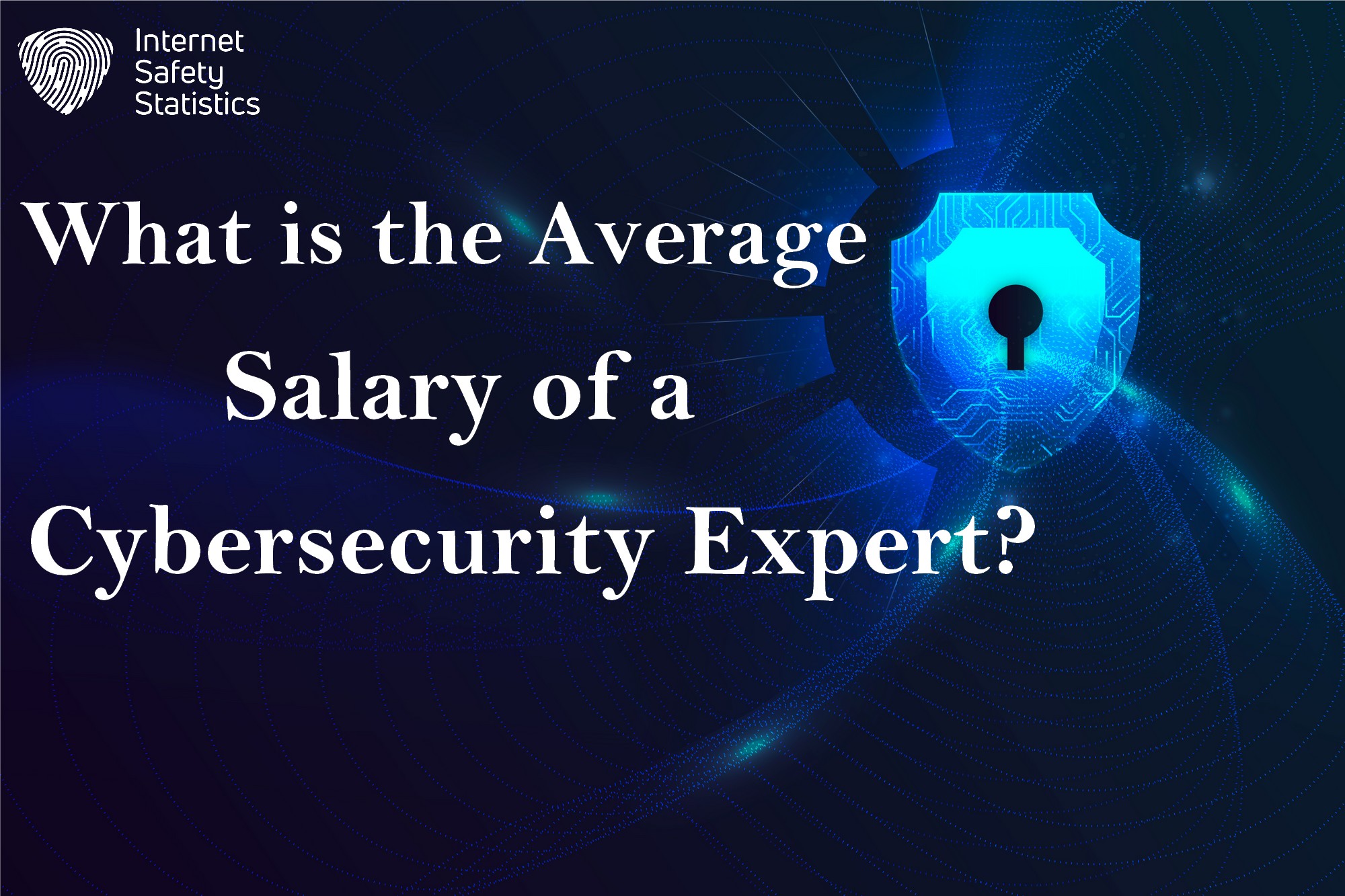
The average salary for a cybersecurity expert can vary depending on several factors, including your job title and responsibilities. The title cybersecurity expert encompasses a wide range of roles, each with its salary average. Examples of these roles and their average salaries worldwide include:
- Cybersecurity Analyst: $102,000 – $208,000
- Cybersecurity Engineer: $116,000 – $208,000
- Penetration Tester: $106,000 – $194,000
- Incident Response Specialist: $95,000 – $184,000
Other factors affecting the average salary for a cybersecurity expert include the location, where major metropolitan areas and tech hubs, such as New York City and Washington D.C., offer higher salaries than smaller cities or rural areas. Experience also significantly determines your salary; entry-level professionals can expect lower salaries than their more experienced counterparts. While a college degree isn’t always a requirement, it can contribute to a higher salary, especially if the organisation you’re applying to work with listed it in its job requirements.
Remember, cybersecurity is an ongoing process, and influential experts remain vigilant and adaptable and continuously enhance their skills and enrich their knowledge to stay ahead of evolving threats and protect organisations from harm.
